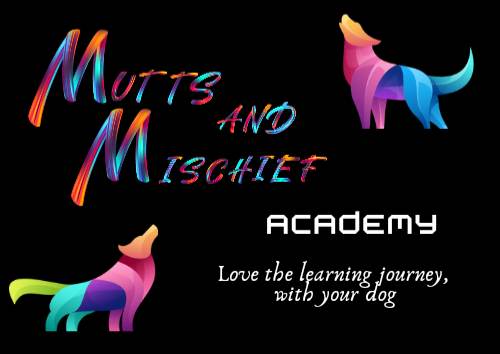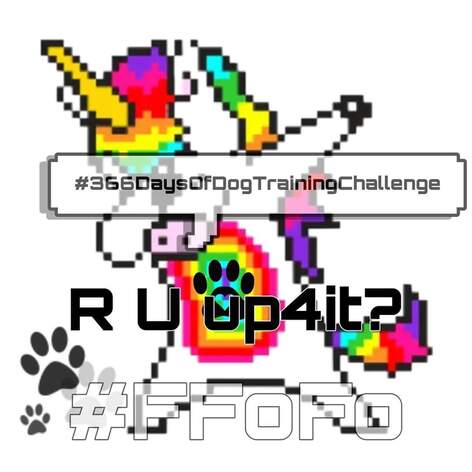 Bringing it all together This past week I have broken down the mechanics of considering the whole dog holistically and the mechanics of behavioural modification. I did this to bring attention to the dog as a species, every dog, whether they be in a home or a shelter, feral or a street dog. Past dogs, present dogs and future dogs. And considering dogs as members of the family, not as a part of the home and removing connotations that a dog is "just a dog." Because dogs are so much more, they are just as complex and important as us. It's important for dog professionals to highlight the needs of dogs within our platforms. I have referenced, research papers and studies and sign posted to other places of canine educational content. The only way that we as dog professionals can effectively help you as an owner (guardian) to care for your dog and ensure that you are meeting your dogs needs and adhering to the Animal Welfare Act 2006 is by supporting both ends of the leads and education. Most of the time by the time that a dog owner (guardian) asks for help 95% of the time, you are burnt out. You've done everything you know how to do, you have googled, you've had both welcomed and unwelcomed unsolicited information, you have tried your best. This is what we as professionals need to recognise. We need to be compassionate and caring and astute to this. I recently spoke for INTODogs on the "puppy blues" and this encapsulates one stretch of life for a dog's entire life - puppyhood. But what about the adult "blues". We cannot put a timeline on when you're going to have a behaviour problem or feel lost. It is all relevant and important to recognise this. Conversely we need to recognise dogs for the wonderful species that they are! 32 countries across the world currently recognise dogs as sentient beings including the UK but until we spread education as to what this means and how this changes the lives of dogs, as there is no way of the law being checked upon and welfare regulated it's easy for this to slip from the collective mind. For example when dogs have been attacked and injured as a result of a human, the dog has not been categorised as anything more than a short sentence and a fine. UK Gov (2017). The socially constructed status of dogs, whether viewed as a pet or a companion, influences the philosophy, methods and training skills used. Simultaneously, the socially constructed status of the use of the terms owner/master/guardian will also influence the choice of training. Sanders.C, (1993). This is why in my blogs I write owner (guardian) to hopefully fully transition to guardian one day and everyone will understand what it is meant by guardian. As although the term has been around since 1993 it is still classed as complex dog professional lingo. Sharing information as to what to expect from behavioural modification and the relevance, how this helps you and your dog, can help to create an understanding of not only what to expect but to help in the education of dog owners (guardians). By being transparent and by enabling dog owners (guardians) hopefully this helps you to feel validated and recognised, as sometimes when you first reach out, you may feel you are being made to jump through hurdles, especially if you have been to a dog professional before and not experienced any of this. This is another reason to highlight this, to ensure that you know what to look for when hiring someone and when you do reach out for help. Because your dog is special, unique and deserves the best. This is also why dog professionals cannot guarantee a timescale to help your dog or promise to "fix" dog behaviour within a month to six week scale. As frustrating as this may be, because sometimes with frustration you just want to move forward, the dog can be helped in a much quicker and longer lasting route when they are cared for as a whole dog with a holistic approach. By considering all of the categories of caring for a dog holistically we can help to change the emotions of a dog rather than seeing a dog as a behaviour(s) that needs fixing. Like a human, emotions don't need fixing but do need help in becoming positive emotions and learning how to work with negative emotions rather than suppress them - such as journaling for humans which we looked at within one of the categories. Behaviour modification is about you, the dog owner (guardian) and your dog(s), the more that you are both supported and validated the more that we can help. It isn't about putting your life under a microscope and judging you, it is in fact the complete opposite. We want to empower you to have the best life that you can with your dog! References Participation, E. (2006) Animal Welfare Act 2006, Legislation.gov.uk. Statute Law Database. Available at: https://www.legislation.gov.uk/ukpga/2006/45/contents Sanders, C. 1993. Understanding dogs: Caretakers attributions of mindedness in canine-human relationships. Journal of Contemporary Ethnography 22: 205-226. Department for Environment, F.& R.A. (2017) Sentences for animal cruelty to increase tenfold to five years,gov.uk Available at: https://www.gov.uk/.../sentences-for-animal-cruelty-to... Animal cruelty (revised 2017) Sentencing available at: https://www.sentencingcouncil.org.uk/.../animal-cruelty...
0 Comments
Leave a Reply. |
BlogFor Mutts & Mischief If you enjoy my blogs and
would like to support my work, you can support me by buying me a Coffee! Archives
July 2024
|
Or are you looking for support and would like to get to know us better?
If the answer is yes then click the image below to join my free facebook group. What is Mutts & Mischief Community?
So it is what it says on the tin! Its a community that is international of Clients and Colleagues with the most supportive and friendly people on the planet. Dog Trainers and Behaviourists from all over the world!
Why did I set up such a mammoth group?
I wanted to have a group exclusively for Clients. For support and to meet uo and build on friendships from Classes or One to Ones. I want Clients to see you are not alone with your Dog and the problem you maybe having that you are not the first and won't be the last! I wanted a safe place where Clients could trade stories good and bad in one place for free!
I also wanted a safe place for the Trainers and Behaviourists I mentor within Social Media Platforms.
Why do this for free?
Because when I say I offer an holistic service I really do. It isn't about the money it is about you and your dogs. You and your dogs are all that matter.
So I wanted to encourage people to do homework and build better quality relationships with their dogs. So 3 years ago I had a mad idea and set up the 100 days of dog training challenge. Once a day people would spend 5 minutes plus training their dog. Recording it and uploading their video onto the Community. Every participant recieved a Certificate.
What I didn't count on was how many Professionals wanted to join and how fast word would spread. So this year 2020 I set up a 366 days of dog training challenge.
We have Clients in America, Greece, Norway, Denmark and Spain. We have Trainers from Greece, Norway, Isle of Wight, America and many more Countries. As well as dog trainers and trainee behaviourists: I mentor all over the world.
So again yes this group is free. It is still primarily for clients and for people to get to know me but we also have the challenge running. Again for free. So if you want to join click the image below to be taken to the group directly. See you there!
So it is what it says on the tin! Its a community that is international of Clients and Colleagues with the most supportive and friendly people on the planet. Dog Trainers and Behaviourists from all over the world!
Why did I set up such a mammoth group?
I wanted to have a group exclusively for Clients. For support and to meet uo and build on friendships from Classes or One to Ones. I want Clients to see you are not alone with your Dog and the problem you maybe having that you are not the first and won't be the last! I wanted a safe place where Clients could trade stories good and bad in one place for free!
I also wanted a safe place for the Trainers and Behaviourists I mentor within Social Media Platforms.
Why do this for free?
Because when I say I offer an holistic service I really do. It isn't about the money it is about you and your dogs. You and your dogs are all that matter.
So I wanted to encourage people to do homework and build better quality relationships with their dogs. So 3 years ago I had a mad idea and set up the 100 days of dog training challenge. Once a day people would spend 5 minutes plus training their dog. Recording it and uploading their video onto the Community. Every participant recieved a Certificate.
What I didn't count on was how many Professionals wanted to join and how fast word would spread. So this year 2020 I set up a 366 days of dog training challenge.
We have Clients in America, Greece, Norway, Denmark and Spain. We have Trainers from Greece, Norway, Isle of Wight, America and many more Countries. As well as dog trainers and trainee behaviourists: I mentor all over the world.
So again yes this group is free. It is still primarily for clients and for people to get to know me but we also have the challenge running. Again for free. So if you want to join click the image below to be taken to the group directly. See you there!
Proudly powered by Weebly


